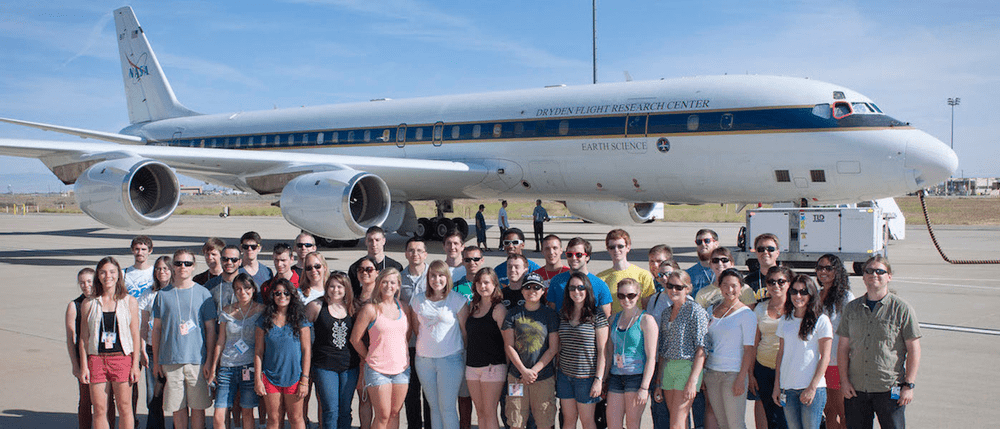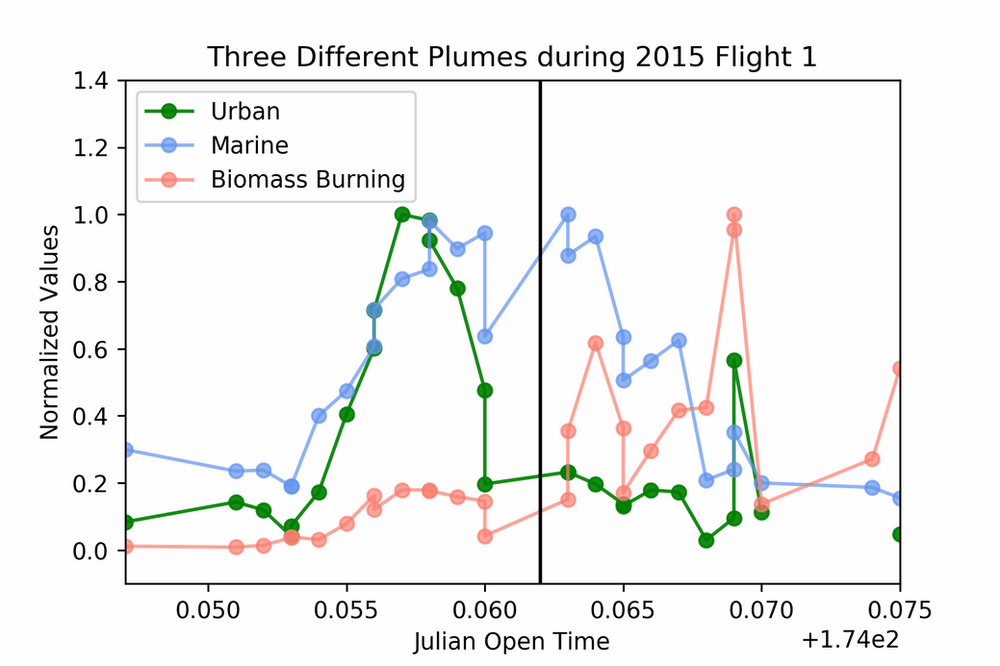Introduction
This post is the third in a series highlighting the fantastic astronomy research Amherst College students have conducted this summer. For more information on the series, visit ,,this post. This week, Astronomy Department Editor William Balmer (that’s me) interviewed Joe Palmo ‘21, who interned this summer at NASA via the Student Airborn Research Program (SARP). I spoke to Joe about his research results and his remote research experience. Joe presented his work at the Physics and Astronomy Department Colloquium in September.
Interview with Joe Palmo ‘21
W: “Joe! Big fan. Can you introduce yourself and tell me where you worked this summer?”
J: “I am Joe Palmo, a senior double major in physics and astronomy, and last summer, I interned at NASA through the Student Airborne Research Program (SARP). The 24-student program was set to be at UC Irvine, but luckily several NASA scientist advisors and professor mentors worked hard to make it happen remotely.”
W: “That rules! What did you work on?”
J: “The goal of the program was to build an original, individual earth science research project using data collected from NASA aircraft and with the help of our mentors. The students were broken up into four different groups: Ocean Remote Sensing, Aerosols, Terrestrial Ecology, and lastly, Whole Air Sampling, which was my group.”

W: “So, what particularly did you do with this dataset?”
J: “My project focused on using data visualization tactics to map air masses and track emissions from fires and fuel leaks.”

W: “Wow, that sounds like pretty important work, especially given current events. Tell me a bit about the process. How was working during Covid, and how was the program overall?”
J: “The experience was everything I could have hoped for under the circumstances. It felt like I was learning and growing every day, and I made some great friends in the program, albeit through Zoom.”
W: “Can you speak a bit about what this summer meant to you and your personal journey?”
J: “Being a part of that group has given me the confidence and enthusiasm to pursue science further and apply to Ph.D. programs this fall!”
W: “Knowing you, you’ll do fantastic. Thanks so much for your time, Joe.”
Final Thoughts
Thanks again to Joe for his wonderful interview. This post concludes the Amherst STEM Network coverage of the Physics and Astronomy Department Colloquium Flash Talks. Thank you to our readers for their encouragement and interest in Amherst summer astronomy research. Stay tuned to the STEM Network to catch future astronomy updates!